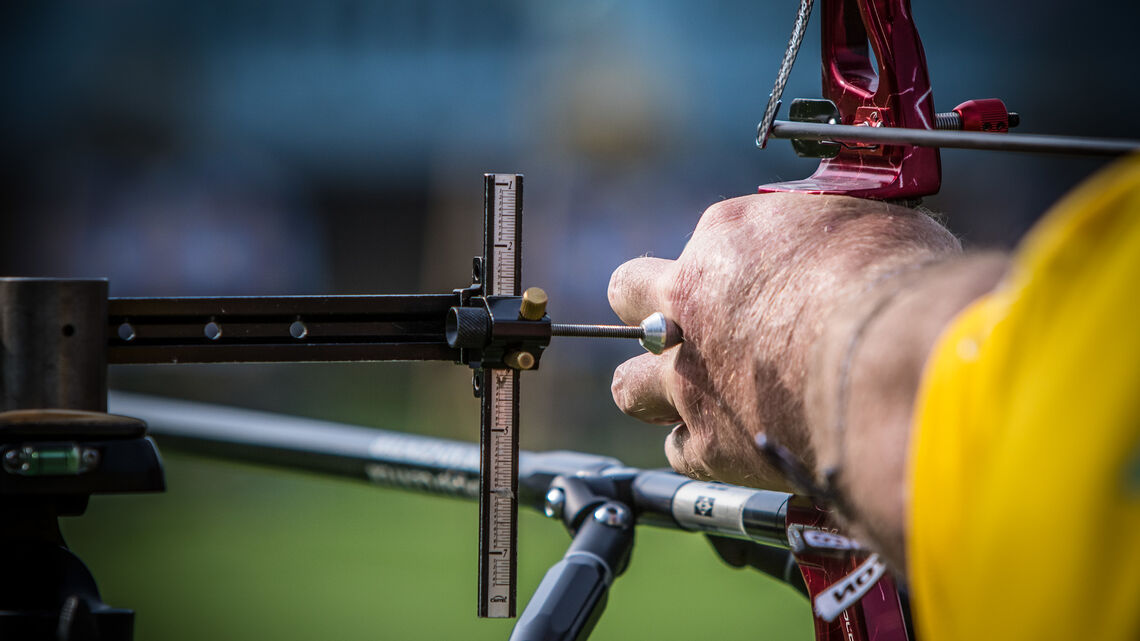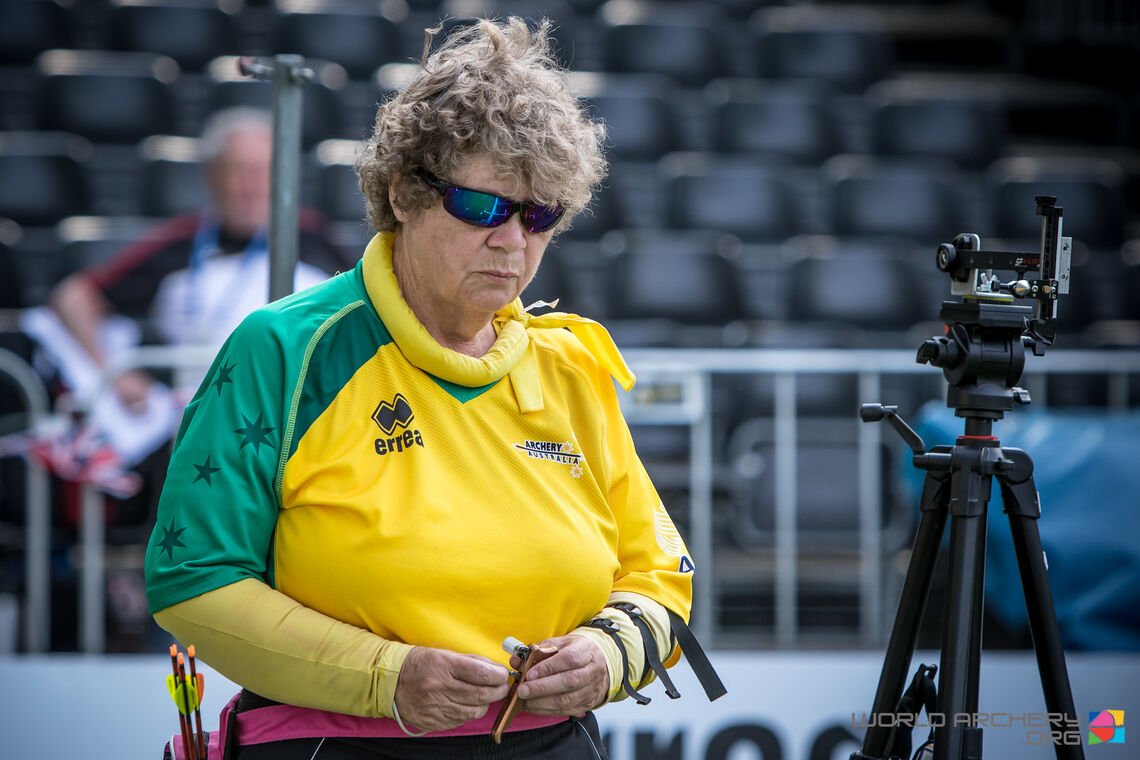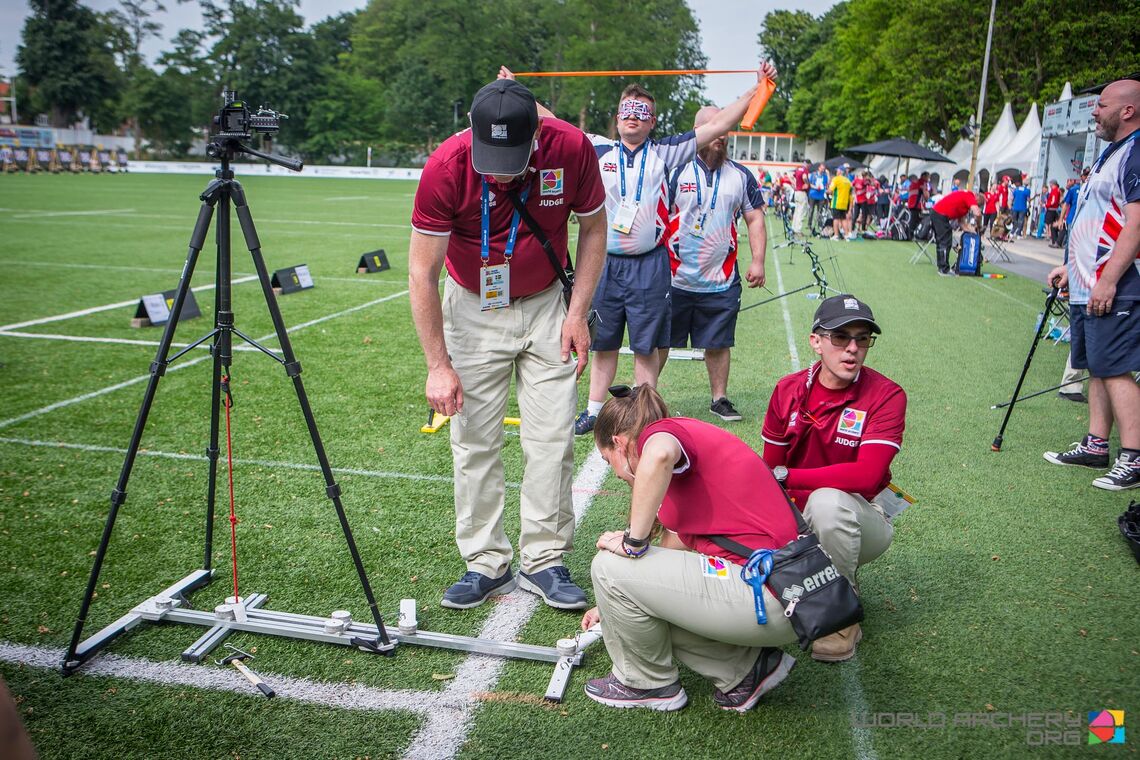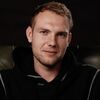The extra challenge of being a world championship archer who is blind

Born in 1953, Hazel Hockley is the oldest participant in the 2019 World Archery Para Championships in ’s-Hertogenbosch, Netherlands.
The Australian archer is visually impaired and has to overcome many challenges every day. In order to travel to this event, Hazel had to fundraise. Her daughter sent the website to her work colleagues and friends and many people contributed.
“They are amazed. They want to know how on earth a blind person can shoot safely,” said Hazel. “They’ve seen archery but they think someone who is blind can’t do it. So we show them how we do it and they understand it.”
Hockley is competing in the visually impaired 1 category. She uses a large piece of aiming equipment that helps her find the target.
“We have a foot marker on the ground so we know where our feet go. There is a camera tripod that we use. On top of the tripod is a tactile, which goes up against the back of your bow hand. That’s lined up by your arrow agent towards the target so you know you're shooting in the right direction. If you move away, your arrow will go off the target,” she explained.
The tactile sight is custom. The rules say it has to be a single point of contact – but they come in different shapes and sizes. By touching the sight with their hand, the athlete has a sense of aim.
Rarely does Hazel know whether her arrow has landed in the right place or not. It is the task of the arrow agent to provide her with the right information.

“Sometimes you can hear from the noise but in the competition, there are so many arrows flying you don’t know if it’s yours or not,” she said. “An arrow agent will tell you the colour and using the clock face, for example, four o’clock.”
Hazel said that without her arrow agent, competing at a tournament like this would be very difficult.
“It’s extremely important. If you don’t know when the arrow has gone, you don’t know whether to replicate what you've done before if you can or whether to make some slight adjustments,” she said.
It was only 20 years ago that Hazel’s sight was deteriorating with a retinal eye condition.
“I was diagnosed in 2000. Before that I was driving, I did everything a normal person did. And in 2000 my life changed drastically. I became legally blind the same year,” Hazel explained.
“It just sets up different challenges. You either sit back waiting for the coffin to come in or you go out and decide you can do something with the rest of your life. And that’s what I decided to do.”
Her first contact with archery came when she was almost 60 years old, helping her partner who is totally blind. She had limited vision, but still could be his volunteer.
Hazel remembers her own first shots well.

“It was scary, very scary. But to know, you can do something, it’s a challenge. And to know you can do that challenge, to overcome what’s seen as a disability… You use your other senses, your muscle memory to develop your archery technique,” she recalled.
Because she had sight when she was younger, Hazel has a good idea of distance. That helps when she’s talking with her coach.
“You can visualise in your mind what they say as long as they describe it to you properly. Sometimes it’s about touching. They try to describe to you something about shoulders, hips. But in the end, they have to show it incorrectly and then correctly. You touch them and feel what’s going on with the body,” she explained.
Hazel, like many of the para athletes shooting at this tournament, is expressing her gratitude towards the volunteer community in ’s-Hertogenbosch with small gifts. She’s brought a bag of small koala and kangaroo key rings.
Distribution of said gifts often results in a friendly talk – many 1000s of miles away from home. There’s no doubt that archery has changed Hazel’s life.
“Yes, it did! I’m here, it’s brilliant! I get to meet all these other people from other countries and learn so much,” she said. “And I realise how much I still have got to learn.”
The 2019 World Archery Para Championships take place on 3-9 June in ’s-Hertogenbosch, Netherlands.











